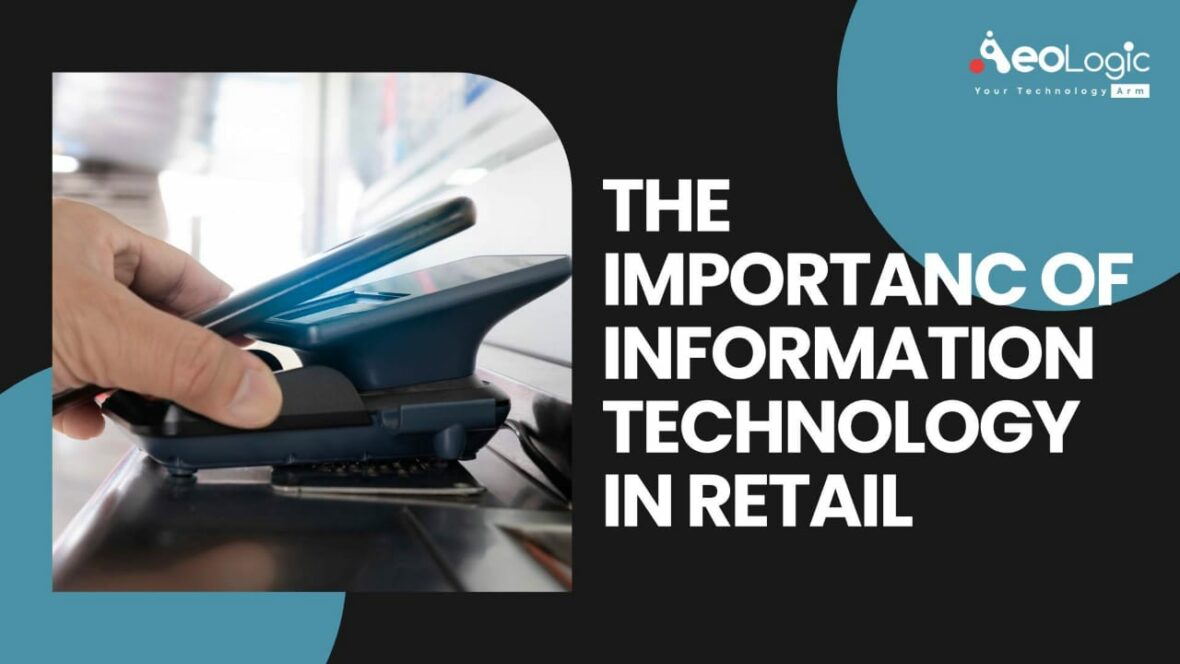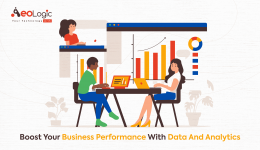The retail sector deals with constant technological advancements. This is evident both in brick ‘n’ mortar stores and online. From the increased use of kiosks to the implementation of artificial intelligence and powerful warehouse management systems, technology continues to escalate. The role of IT in retail is enhancing the customer experience. And offers assistance to retailers across industries with more efficient ways to conduct operations. As well as helps in simplifying certain processes, gaining insight into consumers, keeping track of inventory, and so on. Therefore, one type of technology that can achieve this, is information technology. Information technology in retail can do wonders for businesses as well as for customers.
Also read: 10 Technologies Leading Digital Transformation In Retail
What is Information Technology?
To make it simple, the role of IT in retail is to process, manage and store data and information. Additionally, it uses computers and networks, hardware, software, operating systems, storage, and various other technology. Information Technology in retail can be used to speed up processes. Also, create efficiency across several channels. This includes e-commerce, supply chains, collecting customer data, etc.
Collecting data is a significant part of the role of IT in retail industry. Since it can deliver the information that retailers need to make. Such as important business decisions, and analysis of their customers and their requirements. All while also managing to plan ahead, among several other factors. Many retailers rely on great amounts of data to keep up with competitors. Although collecting it, and then effectively incorporating it, can be difficult.
This is where information technology in retail can come into the picture. By implementing various software, systems, hardware, or networks, retailers can access information from the data. Moreover, the data has been processed and analyzed. Also, the data can be stored securely for later or immediate use. Let’s discuss the following examples of IT in the retail industry.
Electric Point of Sale Software
The major leverages of the role of IT in retail settings are that many of the software and systems utilize automation. For retailers who want to stand out, automation can be extremely handy. Specifically, when inputting and/or collecting data. An example of software that uses automation is an electronic point of sale (EPOS). This system electronically performs business-related tasks.
Such as the checkout process (i.e., scanning, payments, etc.), account management, managing in-store inventory, and more. Through this software and technology, processes can become much more efficient. Depending on digital technology to track and store data that can be later turned into valuable pieces of information. Which the retailer can use later on.
Inventory Prediction and Demand Forecasting
Demand forecasting is a significant aspect of the retail industry. Since it is used to assist retailers to understand and forecast the future demand for their products. It does so by utilizing historical patterns, along with internal and external decisions and factors. Correspondingly, inventory prediction enables retailers to have a better knowledge of their inventory levels. So, they can reorder accordingly. For example, let’s consider that an item is extremely popular.
Retailers can then use the data from previous purchases to study how many items they need to order. Hence, they can manage the inventory. Both inventory prediction and demand forecasting require various technology, such as machine learning and data. In order to work effectively. Implementing the role of IT in retail, such as within supply chain management, can help retailers regularly. It will help to determine purchasing trends and make accurate forecasts accordingly.
Collection of Consumer Data
The information is collected when a customer makes a purchase from a retailer. For example, many customers will provide their email addresses to receive special deals or insight into new products. As well as they will sign up for loyalty programs.
The process of inputting this data and then storing it securely requires the use of IT. Collecting consumer data can prove to be extremely beneficial. As it can be used to create a personalized shopping experience for customers.
IT helps to store customer data, which the retailer can then use to reach out to customers. Through email with personalized offers or with mail offers. And when at the check-out process, retailers can search up the customer’s information to make their experience efficient and quick.
Also read: Why Fashion Industry Invests in Traceability to be Sustainable
Automation
Automating retail is beneficial on multiple situations including streamlining operations, perfecting effectiveness, enhancing client experiences, and enabling retailers to acclimatize to evolving market dynamics. It empowers retailers to allocate resources more effectively, reduce costs, and give substantiated services, eventually driving client satisfaction and loyalty.
By employing automation to help with inventory operation, supply chain logistics, and order fulfillment, the overall effectiveness improves by reducing manual mistakes and time consuming tasks and optimizing overall operations. Retailers can automate repetitious tasks like data entry, stock loss, and pricing, allowing workers to concentrate on further strategic and client centric conditioning.
We offer automation solutions which helps in automating the labour intensive task of streamlining pricing. A job that earlier could take days can be performed seamlessly in a matter of seconds, with both confidence and accuracy. With a completely customizable integration into the POS, switching pricing and introducing new elevations on the shelves takes place with further effectiveness and control.
Client Relationship Management Systems
Client Relationship Management (CRM) systems in retail are essential for fostering and building client loyalty, perfecting client satisfaction, and driving deals. By using client data, CRMs enable retailers to deliver substantiated experiences, targeted marketing campaigns, and exceptional client service across different channels. CRM systems act as a centralized database for client information, for example, as contact details, purchase history, preferences, and relations.
This data is used to gain perceptivity into client experiences and preferences, enabling retailers to give substantiated and better experiences. The systems also help with custom segmentation, personalization & targeted marketing for current and prospective experiences.
Embracing and implementing technology in the retail assiduity is essential for staying applicable in a fleetly evolving assiduity and meeting the ever changing prospects of consumers.
Also read: How to Use AI to Uplift Your Ecommerce Business?
Conclusion
Information Technology in retail plays an important role. Moreover, it can be used to make processes across all digital platforms more efficient. In addition, it helps to stay ahead of the curve, and implement new technological advancements. For instance, cutting-edge software and operating systems. This can help in connecting and fulfilling the needs of customers with much more efficiency in the retail sector.
If you want to deliver the best customer experience for your business, then contact the industry experts at Aeologic Technologies.
FAQs
What is the importance of information technology in the retail industry?
Information technology is the enabler in the retail industry. It improves the customer experience and offers a personalized buying experience to customers. It also speeds up the processes and increases sales. As well as improves the customer retention rate, and offers cost-saving benefits to the company.
What is the need for an information system in retail?
A Retail Information System predicts the information required for retail managers. It gathers, organizes, and stores relevant data on a continuous basis. And then directs the flow of information to the relevant decision-makers.







